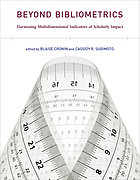SPARC webinar on Monday, May 19th, to help kickoff your planning for this year's International Open Access Week 2014. The webcast featured a panel of experts who have organized successful Open Access Week events in years past. Each described their approach to celebrating the week, give advice on ensuring a successful event, and outline any challenges that other organizers might prepare for. While Open Access Week is five months away (October 21-26, 2014), beginning to make arrangements now can ensure a smooth planning process and provide the foundation for successful events to meaningfully advance the conversation around Open Access on your campus.
The expert panelists included:
Marianne Reed, University of Kansas: Marianne has helped spearhead many years of successful Open Access Week programs at the University of Kansas on behalf of the Libraries’ Office of Scholarly Communication & Copyright, targeting students and faculty. The events have even included a presentation by their local Congressperson, Representative Kevin Yoder, on the topic of Open Access.
Daniel Mutonga, Medical Students' Association of Kenya (MSAKE):
As the former president of the Medical Students' Association of Kenya, Daniel led the organization's extremely successful Open Access Week campaign in 2012 which hosted events at medical schools across the country and, in one week, educated a signficant portion of Kenya's medical students about Open Access.
Anneliese Taylor, University of California, San Francisco:
As Assistant Director for Scholarly Communications & Collections, Anneliese has helped lead UCSF's participation in Open Access Week with events that put the issue into local context and support the successful implementaiton of the system-wide open access policy at UCSF.
See more details and the
archive of the webinar and
related resources.


